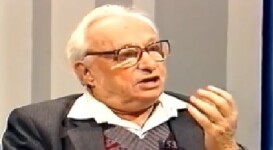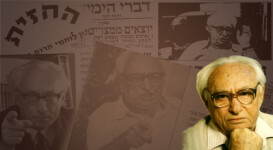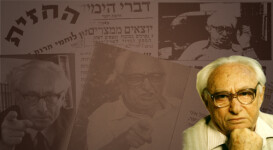What can be more appropriate to the opening of an article on the laureate of the 1979 Jerusalem Prize than the words “I do not know”? Particularly when the prizewinner himself claims English values to be the basis of his belief system.
David Hume, one of the founders of English thought, said: ‘If you were to ask me whether tomorrow the sun will rise, I would answer, I do not know; until now it has come up every day, and tomorrow? We will see.’ About another great English modern thinker, Russell, it is told that after he had made a strong and convincing presenta- tion of a thesis, he was asked whether he would be prepared to stake his life on it.
Russell’s answer was: ‘Oh, no! What if I am wrong?’ Therefore, when starting an article about this “English-man" Isaiah Berlin, nothing seems safer and more convincing than “I do not know” moreover, regarding the issue I will be considering, the “I do not know” is neither rhetorical nor an expression of false modesty, but rather one of justified modesty, since I really do not know.






